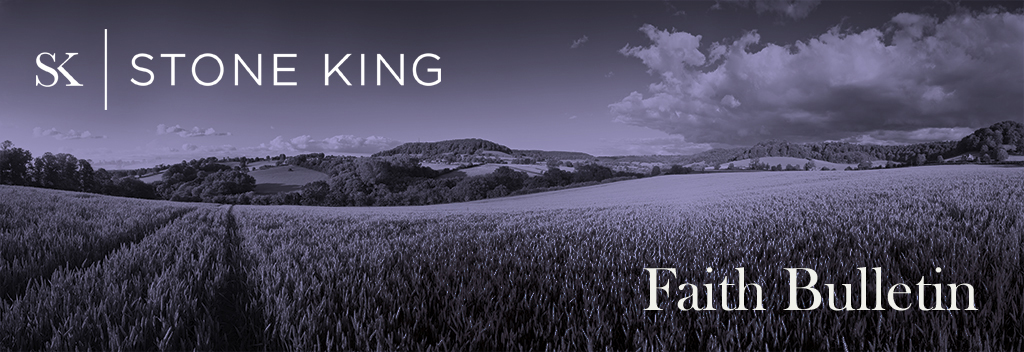
Welcome to the February edition of the Faith Bulletin. In this edition we focus on immigration and the impact of Brexit on people in faith-based organisations, as well as looking at other recent developments which will be of interest.
The impact of Brexit on people in faith-based organisations
As we move closer to Brexit the reality of the UK’s departure from the UK is starting to become a little clearer. In this article Julie Moktadir of Stone King considers the impact on faith-based charities within the UK.
Online right to work checks
Do employers need to carry out right to work checks?
Whilst there is no legal duty to carry out such checks (unless you are a sponsor licence holder), employers are nevertheless strongly advised to carry out such checks. Right to Work checks should be conducted on all prospective employees (and existing employees) irrespective of their nationality.
Law Commission project on leasehold enfranchisement reform
The Law Commission’s consultation on leasehold enfranchisement reform concerning the rights of leaseholders of both houses and flats has recently closed. The outcome of the consultation is particularly important for any Churches that own freehold residential properties with tenants. Stone King’s charity property team set up a working party to respond to the consultation. The key conclusion was that the working party believed that an exemption from the rights of enfranchisement should be made where property is held by or in trust for a charity, whether held as a direct part of the charity’s mission or as an investment, it was accepted that there should be room for consideration of an exclusion from such exemption if a charity positively buys and steps into an existing leasehold structure that was not set up for charitable purposes. If you would like to discuss the consultation further, please contact Chris Sharpe.
NCVO - Charity Ethical Principles code published
NCVO has published the final version of the Code which is based on four key principles: beneficiaries first, integrity, openness and right to be safe. Charities should use the Code alongside the Charity Code of Governance as a framework for working towards better governance and ensuring that as a charity you are true to the charity’s purpose and the way you interact with staff, volunteers and beneficiaries is ethically sound.
GDPR - Post-Brexit Data Transfers - what organisations should be doing now to prepare for a no deal Brexit
The UK will adopt a UK GDPR post Brexit which will be similar to the EU GDPR but reflect the fact that EU law will not apply directly any more. The UK is likely to allow transfers into the European Economic Area. For other places, outside the EEA, existing adequacy decisions will be adopted. Data transfers coming into the UK from EEA will be affected because the UK will be a third country and there is unlikely to be an adequacy decision for the UK immediately when we leave the EU. The UK will be seeking one but it is not a foregone conclusion that it will be granted. Organisations will need to review their privacy notices and data protection policies will need to be reviewed post Brexit to remove all references to ‘Member State Law’ EU GDPR , European Data Protection Board and so on. This applies whether we leave with a deal or on a no deal basis.
In summary:
- Brexit will have an effect on organisations’ data protection policies and procedures whether we leave on a deal or no deal basis. This is limited if the entity is just operating in the UK and has no data flows in or out.
- The exact effect on entities with data flows in and out of the UK is not yet known but details will follow once the Brexit position is known.
- UK organisations can go some way to prepare by understanding their data flows and should follow the ICO ‘Six Steps’ Guidance.
Department for Education - Consultation on education in “out of school settings”
The DfE is currently carrying out a consultation on draft guidance and a voluntary safeguarding code of practice for “out of school settings” which will be relevant to any organisation providing education in an “out of school setting”, for example, religious settings that offer education in their own faith, culture, religious texts, preparation for rites of passage etc. as well as youth centres, sports clubs, extra-curricular clubs, uniformed youth organisations, tuition or learning centres, private language schools and supplementary schools. The aim of the draft guidance, which is non-statutory guidance, is to provide a voluntary resource to help providers understand best practice for creating a safe environment for the children in their care, and to give parents and carers confidence that their child is in a safe learning environment. The consultation closes on 24 February 2019.
Tax - Gift Aid Small Donations Scheme
Draft provisions have been laid to increase the small donation limit from £20 to £30 upon which a charity can claim a Gift Aid style top-up payment under the Gift Aid Small Donations Scheme (GASDS) in the UK, with effect from 6 April 2019 for donations made on or after that date.
Independent Inquiry into Child Sexual Abuse - Residential schools (but with learning points for all who work with vulnerable groups)
The Independent Inquiry into Child Sexual Abuse (IICSA) has published a literature review of research into child sexual abuse in residential and non-residential schools. In particular, the examples of where safeguarding measures have been unsuccessful and examples of positive approaches (pages 27 & 28) are interesting and apply to most settings where safeguarding is relevant.





